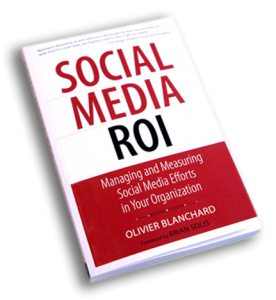We all know what a mentor means. But do we know who each of our mentors are? What about mentors who don’t have the professional title of “mentor” – what about “unofficial mentors”?
Let’s start with the first definition: mentors. These are the people you’ve either connected with through a program or have asked to provide guidance. Moreover, professional mentors.
Then, there’s unofficial mentors. These are the people who you to not only go to for career advice, but also for everyday life lessons.
Fill in the blank: I surround myself with ________ …like minded people, positive people, good-hearted people, etc. Whatever that blank is, that’s where you’ll find your unofficial mentors. Unofficial mentors are those you look up to but don’t always associate an official title with: your mom or dad, sibling, best friend, co-worker on another team, someone you met while volunteering, etc.
While mentors are usually the professional relationships you go to for career advice, unofficial mentors are the ones you go to for everything, sometimes subconsciously.
My unofficial mentors? My mom and dad who I always go to for not only family guidance, but also financial advice (I am two years out of college and still call them about insurance policies). My best friend and boyfriend who is in medical school, the most positive person I know and never lets stress overcome him (even though his field requires sick patients, surgeries and what seems like never-ending standardized tests). Also, one of my best friends and cousins who despite a few struggles has immediately and confidently started creating a new path that includes finishing school and building a family.
It’s good to find those mentors who share professional advice (when to make those career moves, how to gain leadership skills, etc.). But it’s also good to discover and not forget about your unofficial mentors. Both types of mentors can help guide you throughout life tremendously.
Who are your mentors and unofficial mentors?
 Nicole Bersani is the social media coordinator for Comcast SportsNet Chicago. She also serves as the PRSA New Professionals Section mentorship co-chair and volunteers at Midtown Educational Foundation as a tutor/mentor for young girls in Chicago. Connect with her on Twitter and LinkedIn.
Nicole Bersani is the social media coordinator for Comcast SportsNet Chicago. She also serves as the PRSA New Professionals Section mentorship co-chair and volunteers at Midtown Educational Foundation as a tutor/mentor for young girls in Chicago. Connect with her on Twitter and LinkedIn.


 JR Rochester is the current membership co-chair for the PRSA New Professionals Section. Connect with him on Twitter
JR Rochester is the current membership co-chair for the PRSA New Professionals Section. Connect with him on Twitter 


 Catalina Gomez is a graduate of Philadelphia University with a Bachelor of Science in Professional Communication. She specializes in public relations and has experience working with lifestyle and consumer brands. Catalina is also an active member of the Hispanic community and currently resides in Maryland. Connect with her on
Catalina Gomez is a graduate of Philadelphia University with a Bachelor of Science in Professional Communication. She specializes in public relations and has experience working with lifestyle and consumer brands. Catalina is also an active member of the Hispanic community and currently resides in Maryland. Connect with her on 